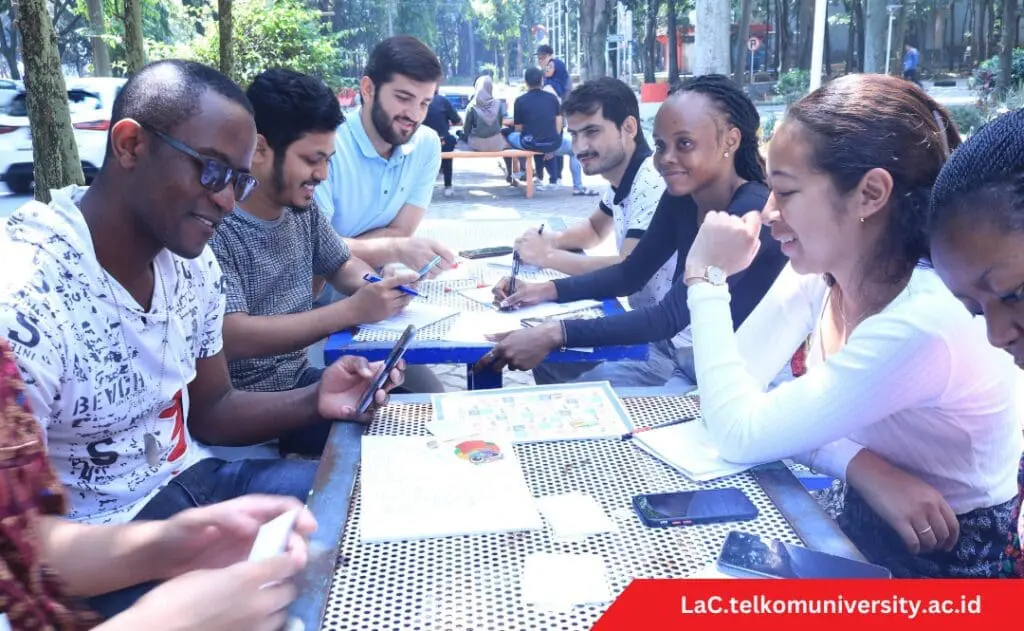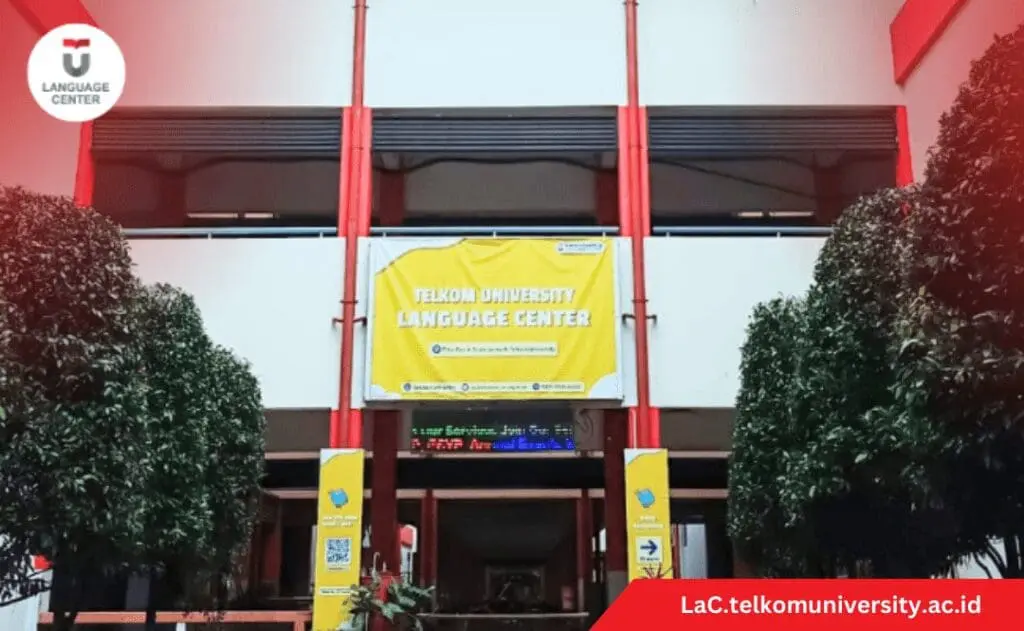
The Importance of Speaking Practice in Indonesian Language Learning
Indonesian Language Learning for Foreign Speakers (BIPA) is one of the increasingly popular programs in various countries. This program is designed to help foreign students and workers excel the Indonesian language effectively and correctly. One of the most important aspects of BIPA learning is speaking practice. This article will discuss the importance of speaking practice, effective ways to do it, and provide examples of everyday Indonesian sentences that can be used.
Learning a foreign language is not an easy task, especially for those who are first acquainted with the language. Indonesian language has a different structure and vocabulary compared to other languages, so it requires an effective and comprehensive learning method. One of the most effective methods in language learning is speaking practice. Through speaking practice, foreign speakers can apply the theories they learn in real situations, improve their communication skills, and build confidence.

The Importance of Speaking Practice
Speaking practice plays a very important role in learning Indonesian for foreign speakers due to various factors that support and enrich the learning process. Here are some reasons why speaking practice is very important in learning Indonesian language:
1. Improving Communication Skills: Speaking practice allows foreign speakers to practice using the vocabulary and grammar they have learned. As a result, they become more fluent and confident in their Indonesian communication.
2. Improving Pronunciation: Through speaking practice, foreign speakers can improve their pronunciation. Good pronunciation is very important to ensure that their message is clearly understood by the listener.
3. Improving Memory: Regularly speaking the language help improve memory of vocabulary and sentence structure. The brain tends to remember information that is often used in real contexts.
4. Increasing Self-Confidence: Speaking practice can help foreign speakers feel more confident in using Indonesian. The more they practice, the more comfortable they become in communicating with native speakers.
How to Practice Speaking
Practicing speaking a new language is an important step towards achieving fluency and confidence. There are various methods that can be done to practice speaking Indonesian, and here are some interesting and effective ways:
1. Joining a Language Community: Language clubs are great places to practice speaking with native speakers and fellow learners. In these settings, foreign speakers can practice speaking in a relaxed and supportive atmosphere.
2. Using Language Learning Apps: Many language learning apps now offer features for practicing speaking. These apps often include speech recognition technology that helps improve pronunciation.
3. Looking for Language Tandem Friends: A language tandem partner is someone who wants to learn a language you are proficient in, while you want to learn a language that they are skilled in. Through this exchange, you can teach each other and practice speaking.
4. Taking Conversation Classes: Conversation classes focus specifically on speaking practice. In these classes, foreign speakers practice speaking in various real-life situations, such as shopping, dining out, or talking on the phone.
5. Talking to Yourself: If you do not have access to friends or classes, you can practice speaking to yourself. Try describing daily activities or talking about specific topics.

Examples of Indonesian Sentences in Everyday Life
To help practice speaking, here are some examples of Indonesian sentences for everyday situations:
A. Greetings and Introductions
1. Hello, my name is John (Halo, nama saya John)
• Hello, my name is John. I am originally from the United States, and I am very happy to be in Indonesia to learn the language and culture. (Halo, nama saya John. Saya berasal dari Amerika Serikat, dan saya sangat senang bisa berada di Indonesia untuk belajar bahasa dan budaya.)
2. How are you? I am fine, thank you. (Apa kabar? Saya baik-baik saja, terima kasih)
• How are you? I hope you are doing well. I am fine, thank you for asking. (Apa kabar? Semoga Anda dalam keadaan baik. Saya sendiri baik-baik saja, terima kasih telah menanyakan)
3. Nice to meet you. (Senang bertemu dengan Anda)
• It’s very nice to meet you. I have been wanting to introduce myself because many friends have recommended you as a friendly and smart person. (Senang sekali bisa bertemu dengan Anda. Saya sudah lama ingin berkenalan karena banyak teman yang merekomendasikan Anda sebagai orang yang ramah dan pintar.)
B. In a Public Place
1. Excuse me, where is the restroom?(Maaf, di mana letak toilet?)
• Excuse me, can you help me? I am looking for the restroom as this is my first time here and I don’t know the direction. (Maaf, apakah Anda bisa membantu saya? Saya sedang mencari letak toilet karena saya baru pertama kali ke sini dan belum tahu arah.)
2. How much does this cost? (Berapa harga barang ini?)
• Could you tell me the price for this item? I am interested in buying it but want to make sure it fits within my budget. (Bolehkah saya tahu berapa harga barang ini? Saya tertarik untuk membeli tetapi ingin memastikan apakah sesuai dengan anggaran saya.)
3. Can you help me? (Bisa tolong saya?)
• Excuse me, can you help me? I am a bit lost with the directions and need help finding the location of Monumen Nasional. (Maaf, apakah Anda bisa menolong saya? Saya sedikit kebingungan dengan arah jalan dan membutuhkan bantuan untuk menemukan lokasi Monumen Indonesia.)
C. In Restaurants
1. I want to order fried rice.(Saya mau memesan nasi goreng.)
• I would like to order a special fried rice with a fried egg on top. Could you please add some chili for a bit of spice? (Saya ingin memesan satu porsi nasi goreng spesial dengan tambahan telur mata sapi di atasnya. Apakah bisa ditambahkan sedikit cabai untuk rasa pedas?)
2. Can I see the menu?(Boleh minta menu?)
• Could I see the menu first? I would like to check the available food and drink options before ordering. (Bolehkah saya melihat menu terlebih dahulu? Saya ingin melihat pilihan makanan dan minuman yang tersedia sebelum memesan.)
3. Please add some sugar. (Tolong tambahkan sedikit gula.)
• Excuse me, my drink tastes a bit bland. Could you please add a little more sugar to make it sweeter? (Permisi, minuman saya terasa kurang manis. Bisakah Anda menambahkan sedikit gula agar rasanya lebih enak?)
D. At the Workplace
1. Have you completed the report?(Apakah Anda sudah menyelesaikan laporan itu?)
• Have you had a chance to finish the report we discussed yesterday? I need to review it before tomorrow’s presentation. (Apakah Anda sudah sempat menyelesaikan laporan yang kita bicarakan kemarin? Saya butuh untuk memeriksanya sebelum presentasi besok.)
2. I need help with this project.(Saya butuh bantuan untuk proyek ini.)
• I am working on this new project and there are some challenging parts. Can you help me complete it? (Saya sedang bekerja pada proyek baru ini dan ada beberapa bagian yang cukup menantang. Apakah Anda bisa membantu saya menyelesaikannya?)
3. Let’s discuss further. (Mari kita berdiskusi lebih lanjut.)
• I think we need to discuss this project plan further. Do you have time for a brief meeting later this afternoon? (Saya pikir kita perlu berdiskusi lebih lanjut tentang rencana proyek ini. Apakah Anda punya waktu untuk rapat singkat nanti sore?)
E. At School or University
1. When is the exam scheduled?(Kapankah jadwal ujian tersebut?)
• When exactly is the final exam scheduled? I need to plan my study time to prepare well. (Kapan tepatnya jadwal ujian akhir semester ini? Saya perlu merencanakan waktu belajar saya agar bisa mempersiapkan diri dengan baik.)
2. May I borrow this book?(Bolehkah saya meminjam buku ini?)
• Can I borrow this book for a few days? I need it for a research assignment that I have to complete soon. (Apakah saya bisa meminjam buku ini untuk beberapa hari? Saya membutuhkannya untuk tugas penelitian yang harus segera diselesaikan.)
3. What is the topic of our assignment? (Apa topik tugas kita?)
• What is the topic of our group assignment this time? I want to make sure we are all on the same page and can divide the tasks fairly. (Apa topik tugas kelompok kita kali ini? Saya ingin memastikan bahwa kita semua berada di jalur yang sama dan membagi tugas dengan adil.)
Learn Indonesian at Telkom University Language Center
Through consistent speaking practices, foreign students and workers can master the Indonesian language more quickly and effectively. Good speaking skills not only help in everyday communication, but also open up greater opportunities in the professional and social world. By practicing speaking, foreign speakers will become more confident and able to adapt to their new environment in Indonesia.

There is no instant way to learn a language, but with the right methods and strong determination, satisfactory results can definitely be achieved. Speaking practice is one of the key components in mastering Indonesian language. With the various methods and approaches available, every learner can find the strategy that best suits their learning style.
If you want to improve your Indonesian quickly and effectively, join BIPA course at Telkom University Language Center. This program is specifically designed to meet the needs of learning Indonesian for foreign speakers with interactive and fun teaching methods. Register now via the following link: Telkom University BIPA Course. Together let’s realize your dream to be fluent in Indonesian language!
Penulis: Pusat Bahasa Tel-U | Editor: Auliya Rahman P | Foto: Pusat Bahasa Tel-U
Eksplorasi konten lain dari Telkom University Language Center
Berlangganan untuk dapatkan pos terbaru lewat email.